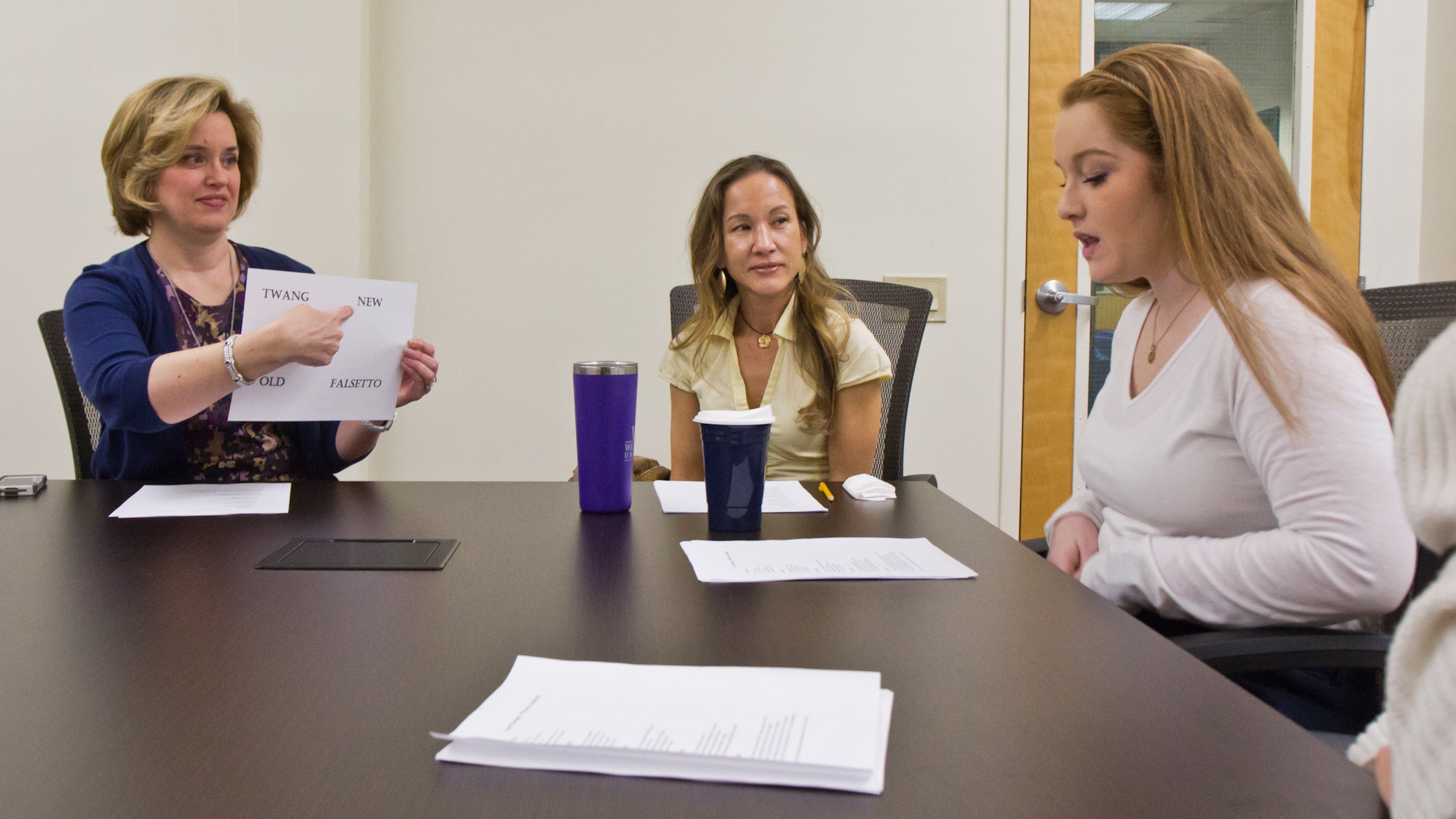West Chester professor wants to be a voice (coach) for teachers
More than half of teachers say they’ve had some sort of voice disorder during their career. A West Chester professor is working to help them.
Listen 2:33
Hannah Kaptur, a student teacher at Rainbow Elementary in Coatesville, Pa., felt that voice training made it easer to use her voice all day. (Kimberly Paynter/WHYY)
Professor Elizabeth Grillo’s classroom at West Chester University sounds like the world’s most polite traffic jam.
On a recent Thursday, in orderly succession, her students mimicked the sound of a car horn — “BEEP! BEEP!” — before reciting something mundane in the same register as those “beeps.”
You try it.
Now hold your nose, and try to make the same sound again.
To do this vocal exercise successfully, you have to use something called oral twang — so named because it forces you to use your oral cavity (aka mouth) and a muscle called the aryepiglottic sphincter (no giggling, please).
This probably means nothing to you. But if you’re a teacher, it could be the difference between a happy day at the office and prohibitive pain.
Oral twang allows you to project your voice without hammering hard on your true vocal folds, the tissue that typically vibrates when you talk. And teachers talk a lot.

“They are vocal athletes,” said Grillo. “They talk nine hours a day nonstop.”
Grillo, a speech-language pathologist, wants to train these “athletes” the right way before they get to the big leagues.
This school year, she helped teach 75 aspiring teachers in West Chester’s education department the science of speaking. She’s now tracking their progress as student teachers, using data from an app that measures the tone and strength of their voices over time.
With a grant from the National Institutes of Health, Grillo hopes to prove that this combination of pedagogy and technology can help teachers overcome a recurring problem.
Teachers are about twice as likely as average workers to have a voice problem, according to one study, and more than half of teachers say they’ve had some sort of voice disorder during their career. In 2001, a pair of researchers estimated those raspy-voiced teachers may have cost the economy $2.5 billion a year in missed days and medical treatment.
Grillo believes teacher prep programs could reduce those numbers with some simple voice training. Her intervention includes three, one-hour sessions where prospective teachers learn three vocal patterns that help alleviate stress on the vocal folds.
“I just want them to be able to hear and feel that difference,” Grillo said.
Grillo teaches a “falsetto” method for one-on-one conversations and a method called “new voice” for when teachers speak at a normal volume. Oral twang is for those megaphone moments, the kind that can lead to lesions and other problems if a teacher isn’t careful.
Hannah Kaptur stumbled into those hazards shortly after she began student teaching at Rainbow Elementary School in Coatesville, Pennsylvania, last fall.
“I would feel really hoarse by the end of the day,” she said. “My voice would sound really creaky — almost like a frog.”
Kaptur attended Grillo’s three lessons during her first semester and has been using the app to track her progress ever since. Her biggest problem was something called “slack” — a Jeff Spicoli-esque tendency that savages the vocal folds.
Kaptur’s been battling “slack” ever since and feels she’s making progress.
“Now I don’t notice much of a difference at all between my voice in the morning and in the afternoon,” she said.
WHYY is your source for fact-based, in-depth journalism and information. As a nonprofit organization, we rely on financial support from readers like you. Please give today.





